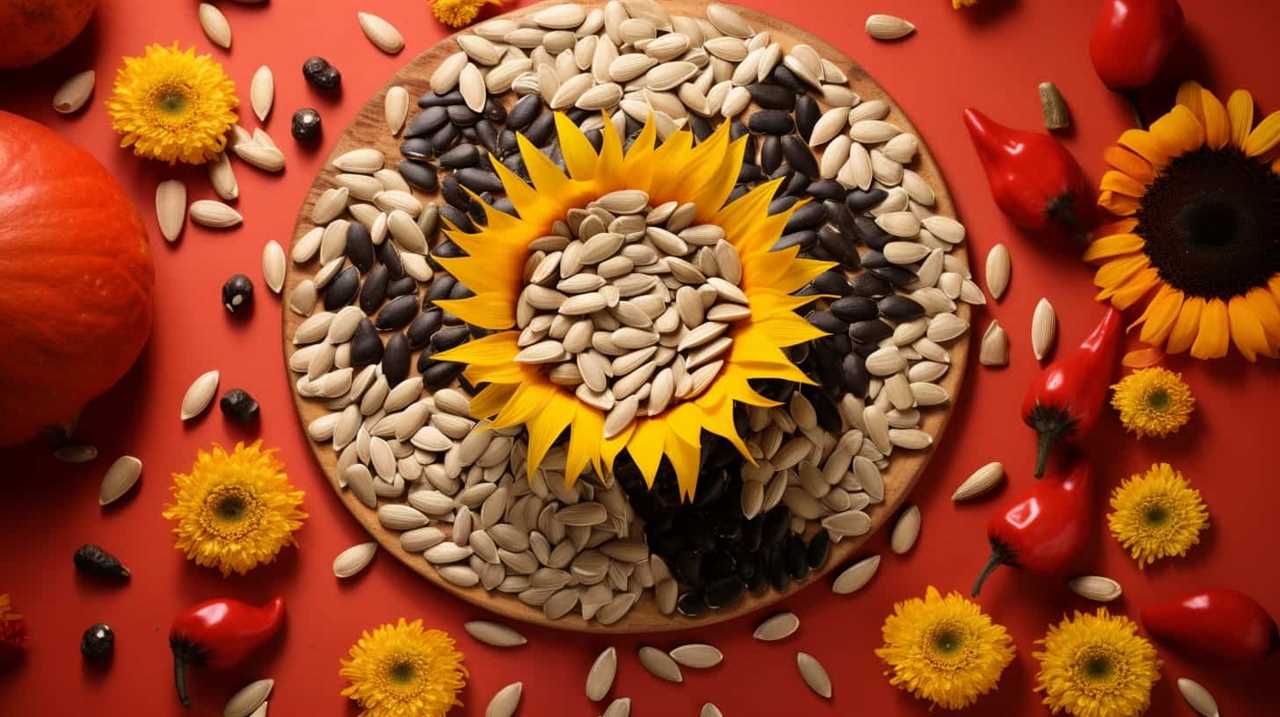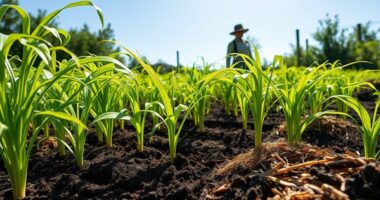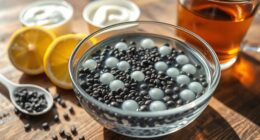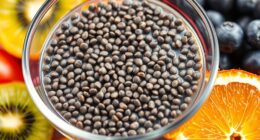Concerned about the negative impact of chemicals and artificial fertilizers on the environment? We get it. That’s why we’re thrilled to introduce you to the advantages of using organic techniques for seed cultivation.
By opting for organic methods, we can not only grow healthier and more nutritious plants, but also protect our planet for future generations.
Join us as we explore the benefits of organic chia seed cultivation and discover how you can make a positive impact on our world.
Key Takeaways
- Organic techniques in seed cultivation contribute to the long-term sustainability of farming practices.
- Organic cultivation enhances soil fertility, reduces environmental pollution, and improves biodiversity.
- Organic seeds are free from harmful chemicals and rich in nutrients, supporting heart health, digestion, and energy levels.
- Natural pest control methods and organic fertilization techniques are used in organic seed cultivation, minimizing negative impact on the environment.
Benefits of Organic Chia Seed Cultivation
We have found several significant benefits of using organic techniques in chia seed cultivation. Sustainable farming practices are at the heart of these techniques, ensuring that we’re able to grow chia seeds in an environmentally friendly manner. By avoiding the use of synthetic pesticides and fertilizers, we can minimize the negative impact on soil health and water quality. This not only benefits the ecosystem but also contributes to the long-term sustainability of our farming practices.
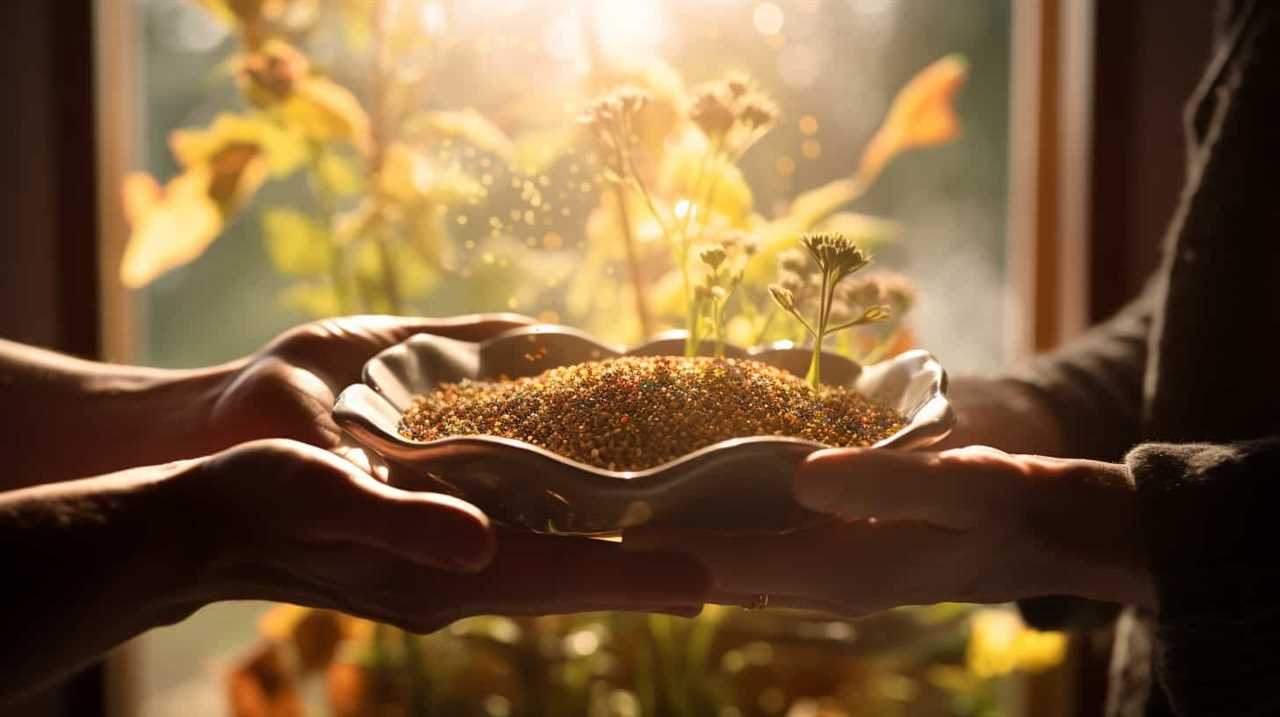
In addition, organic chia seeds offer numerous health benefits. They’re free from harmful chemicals and are rich in nutrients, antioxidants, and omega-3 fatty acids. Incorporating organic chia seeds into our diet can support heart health, improve digestion, and boost energy levels. By choosing organic chia seed cultivation, we prioritize both our own well-being and the health of the planet.
Soil Preparation for Organic Chia Seed Cultivation
To prepare the soil for organic chia seed cultivation, we start by incorporating natural amendments. Soil testing is essential to determine its nutrient content and pH level. This helps us understand the soil’s current condition and identify any deficiencies or imbalances. Once we have the test results, we can tailor our amendments accordingly. Organic matter, such as compost or well-rotted manure, is a great way to improve soil fertility and structure. It adds essential nutrients and improves water retention. Additionally, crop rotation is another important practice in organic chia seed cultivation. By rotating crops, we can prevent the build-up of pests and diseases, as well as reduce nutrient depletion. This practice helps maintain a healthy soil ecosystem and promotes sustainable farming practices.
| Soil Amendments | Benefits |
|---|---|
| Compost | Improves soil fertility and structure |
| Manure | Adds essential nutrients |
| Cover crops | Prevents erosion and adds organic matter |
| Green manure | Fixes nitrogen and improves soil health |
| Mulch | Retains soil moisture and suppresses weeds |
Natural Pest Control Methods for Chia Seed Cultivation
Utilizing eco-friendly pest management strategies is crucial for maintaining the health and productivity of chia seed crops. One effective method is companion planting, which involves growing certain plants alongside chia to deter pests. For example, planting marigolds near chia plants can repel aphids and other harmful insects.
Another approach is biological pest management, which involves introducing natural predators or parasites to control pest populations. Ladybugs, lacewings, and predatory mites are beneficial insects that can help control pests like aphids and spider mites. Additionally, planting flowers such as dill and fennel can attract beneficial insects that prey on pests.

These natural pest control methods not only help protect chia seed crops from pests but also promote a healthy and balanced ecosystem in the field.
Organic Fertilization Techniques for Chia Seed Cultivation
When it comes to chia seed cultivation, we rely on organic fertilization techniques for optimal growth and nutrient absorption. Organic fertilizers are a natural alternative to synthetic ones, providing essential nutrients to the plants while also improving soil health and fertility. By using organic fertilizers, we can ensure that our chia seeds grow in a sustainable and environmentally friendly manner.
One effective method of organic fertilization is through composting. Composting involves the decomposition of organic matter, such as kitchen scraps and yard waste, to create nutrient-rich compost. This compost can then be used as a natural fertilizer, providing the necessary nutrients for the chia plants to thrive. Additionally, organic weed management techniques can be implemented to further enhance the growth of chia seeds without the use of harmful chemicals.
By adopting these organic fertilization techniques, we can promote the growth of healthy chia plants while minimizing the negative impact on the environment.
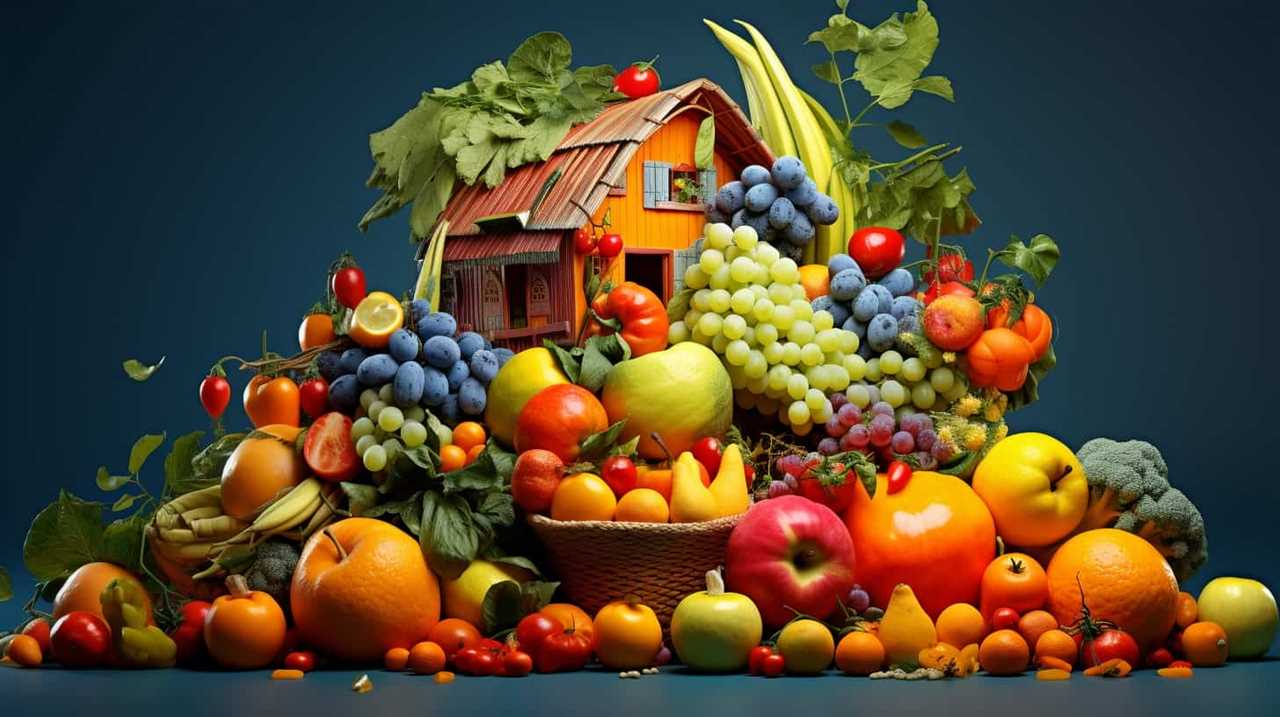
In the next section, we’ll explore sustainable harvesting practices for chia seeds.
Sustainable Harvesting Practices for Chia Seeds
In sustainable harvesting practices for chia seeds, we implement careful techniques to ensure the optimal yield and quality of our crop. By following these practices, we not only protect the environment but also contribute to the chia seed market trends, which are seeing a significant increase in demand due to their nutritional value.
Here are three key practices we employ:
-
Timing: We harvest chia seeds when they’re fully matured and dry, ensuring maximum nutrient content and flavor.
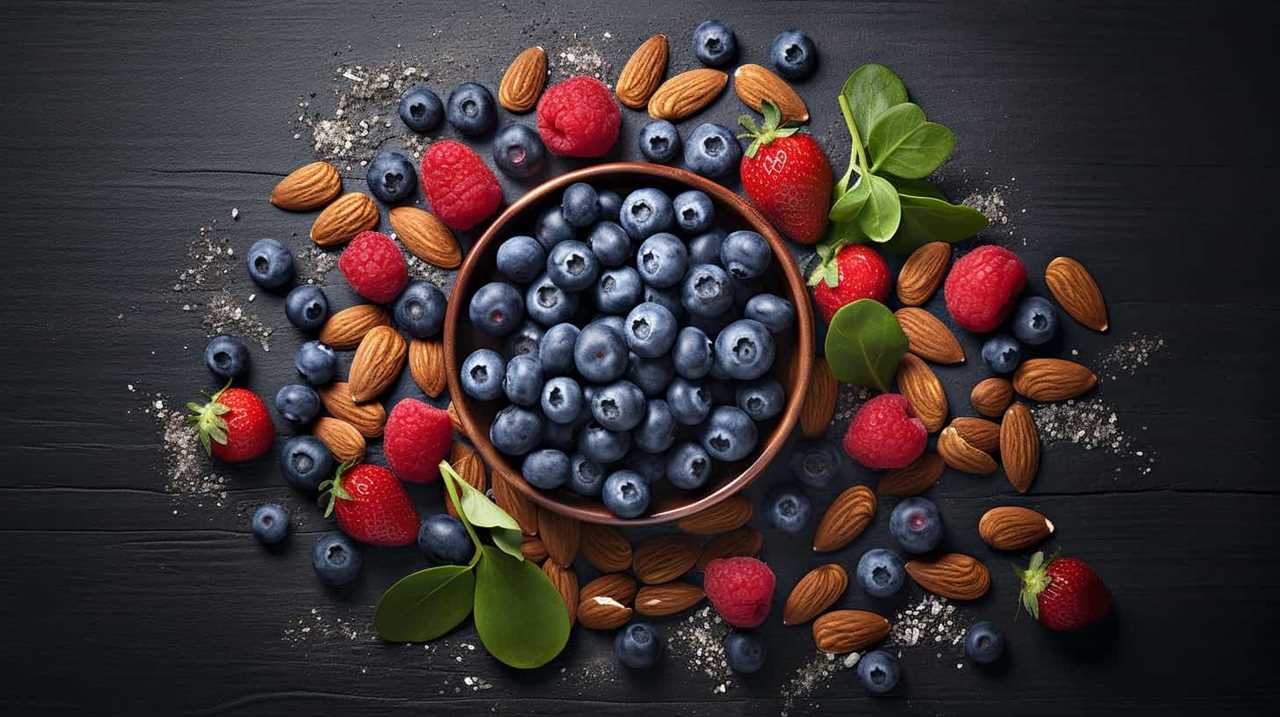
-
Gentle handling: We use specialized equipment to harvest chia seeds, minimizing damage to the plants and preserving their integrity.
-
Proper storage: Immediately after harvesting, we store the chia seeds in a cool, dry place to maintain their freshness and prevent spoilage.
Frequently Asked Questions
What Are the Potential Health Benefits of Consuming Chia Seeds?
Chia seeds have potential medicinal properties and high nutritional value. Consuming them can benefit our health by providing essential nutrients and promoting various health functions.
How Long Does It Take for Chia Plants to Grow and Produce Seeds?
Chia plants typically take around 2-4 months to reach maturity and produce seeds. The exact timeline depends on various factors such as growing conditions and cultivation techniques. Harvesting can be done when the plants have fully developed seed heads.
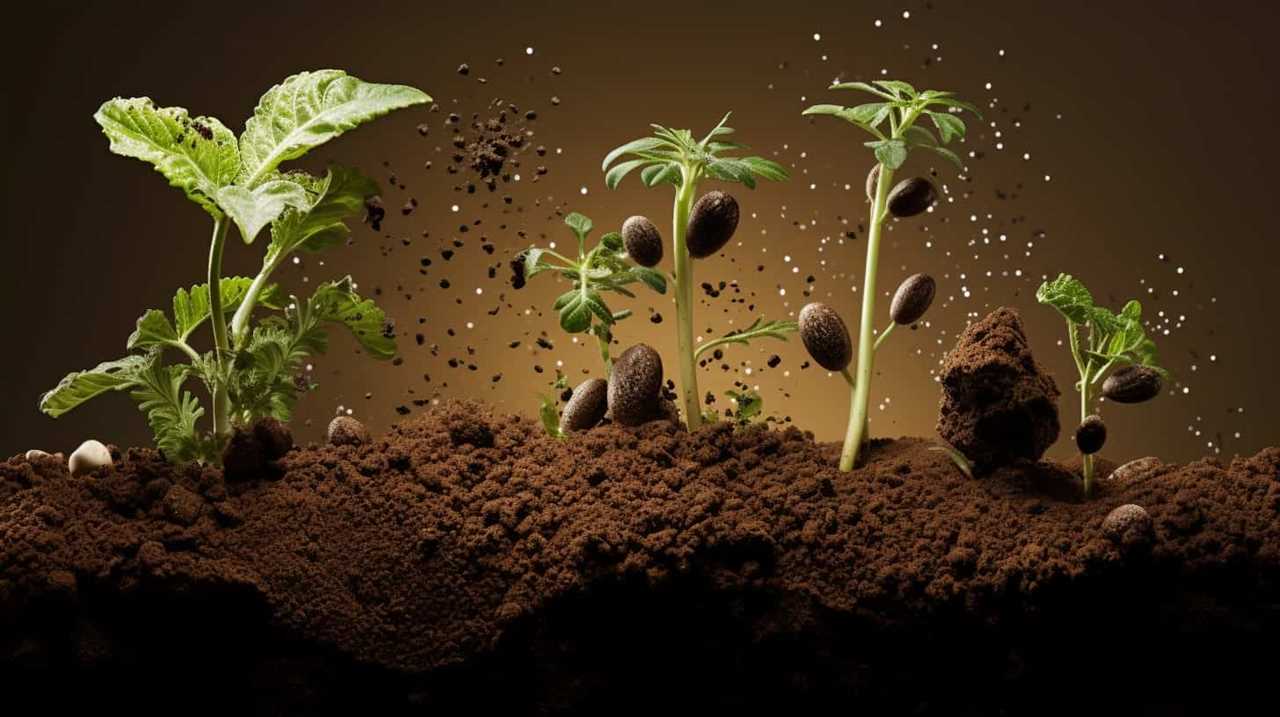
Can Organic Chia Seeds Be Used for Other Purposes Besides Consumption?
Organic chia seeds have various alternative uses and non-edible applications. They can be used for making natural beauty products, as a source of fiber in textiles, or even as a component in eco-friendly packaging materials.
Are There Any Specific Challenges or Difficulties Associated With Organic Chia Seed Cultivation?
When it comes to organic seed cultivation, challenges and difficulties can arise. However, by opting for organic techniques, we can overcome these obstacles and ensure the growth of healthy, sustainable crops.
What Are the Specific Environmental Benefits of Using Organic Techniques in Chia Seed Cultivation?
Organic techniques in chia seed cultivation have significant environmental benefits. They reduce the use of synthetic pesticides and fertilizers, minimize soil erosion, promote biodiversity, and contribute to sustainable farming practices.
Conclusion
In conclusion, opting for organic techniques in seed cultivation, such as those used for chia seeds, offers numerous benefits.
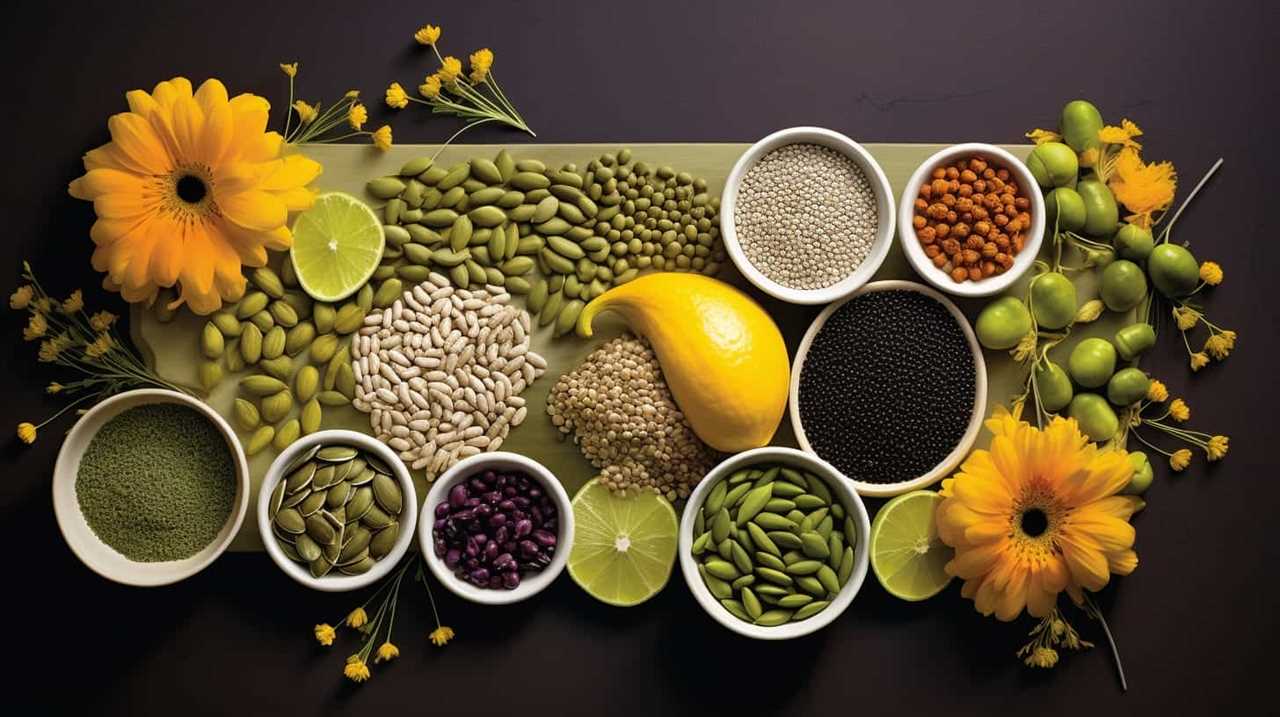
From improved soil quality to natural pest control methods, organic cultivation ensures the production of healthier and more nutritious seeds.
By using sustainable harvesting practices, we can preserve the integrity of our environment and support the long-term viability of chia seed production.
Embracing organic methods isn’t only scientifically proven, but also a persuasive choice for a healthier future.


